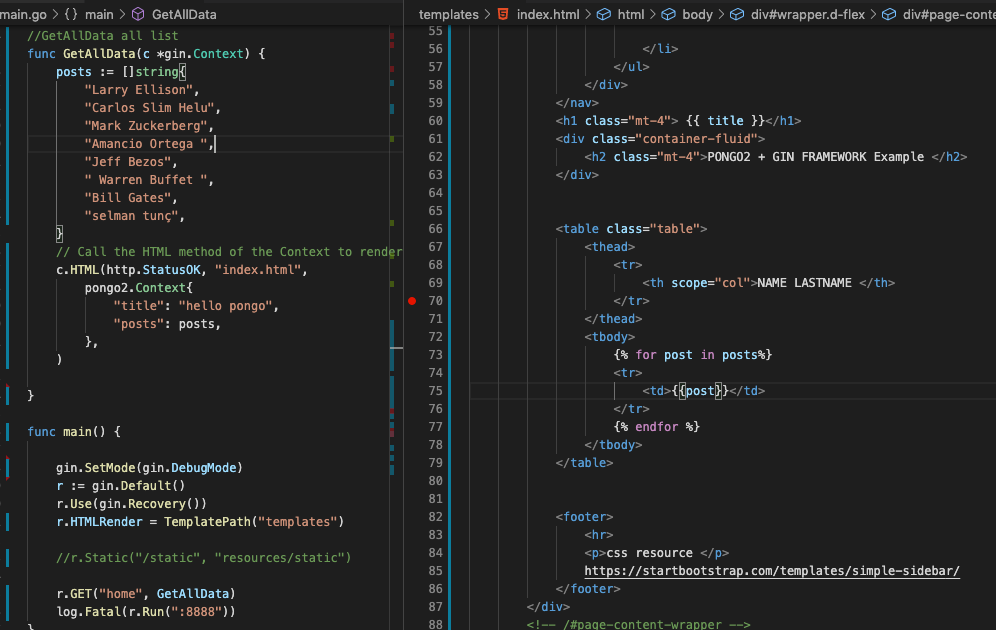Package pongo2gin is a template renderer that can be used with the Gin web framework https://github.com/gin-gonic/gin it uses the Pongo2 template library https://github.com/flosch/pongo2
pongo2 is a Django-syntax like templating-language (official website).
go get "github.com/tecome/pongo2gin"
Requires Gin 1.14 or higher and Pongo2.
To use pongo2gin you need to set your router.HTMLRenderer to a new renderer instance, this is done after creating the Gin router when the Gin application starts up. This assumes templates will be located in the "templates" directory, or you can use pongo2gin.TemplatePath("templates") to specify a custom location.
To render templates from a route, call c.HTML just as you would with regular Gin templates, the only difference is that you pass template data as a pongo2.Context instead of gin.H type.
package main
import (
"log"
"net/http"
"github.com/tecome/pongo2gin"
"github.com/flosch/pongo2"
"github.com/gin-gonic/gin"
)
//GetAllData all list
func GetAllData(c *gin.Context) {
posts := []string{
"Larry Ellison",
"Carlos Slim Helu",
"Mark Zuckerberg",
"Amancio Ortega ",
"Jeff Bezos",
" Warren Buffet ",
"Bill Gates",
"selman tunç",
}
// Call the HTML method of the Context to render a template
c.HTML(http.StatusOK, "index.html",
pongo2.Context{
"title": "hello pongo",
"posts": posts,
},
)
}
func main() {
gin.SetMode(gin.DebugMode)
r := gin.Default()
r.Use(gin.Recovery())
r.HTMLRender = pongo2gin.TemplatePath("templates")
r.GET("home", GetAllData)
log.Fatal(r.Run(":8888"))
}<h1> {{ title }}</h1>
{% for post in posts%}
<ul>
<li>{{post}}</li>
</ul>
{% endfor %}Templates will be cached if the current Gin Mode is set to anything but "debug", this means the first time a template is used it will still load from disk, but after that the cached template will be used from memory instead.
If he Gin Mode is set to "debug" then templates will be loaded from disk on each request.
Caching is implemented by the Pongo2 library itself.
